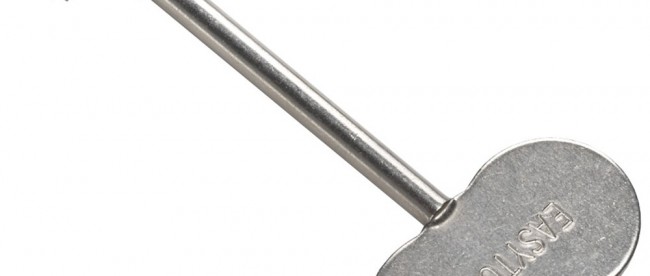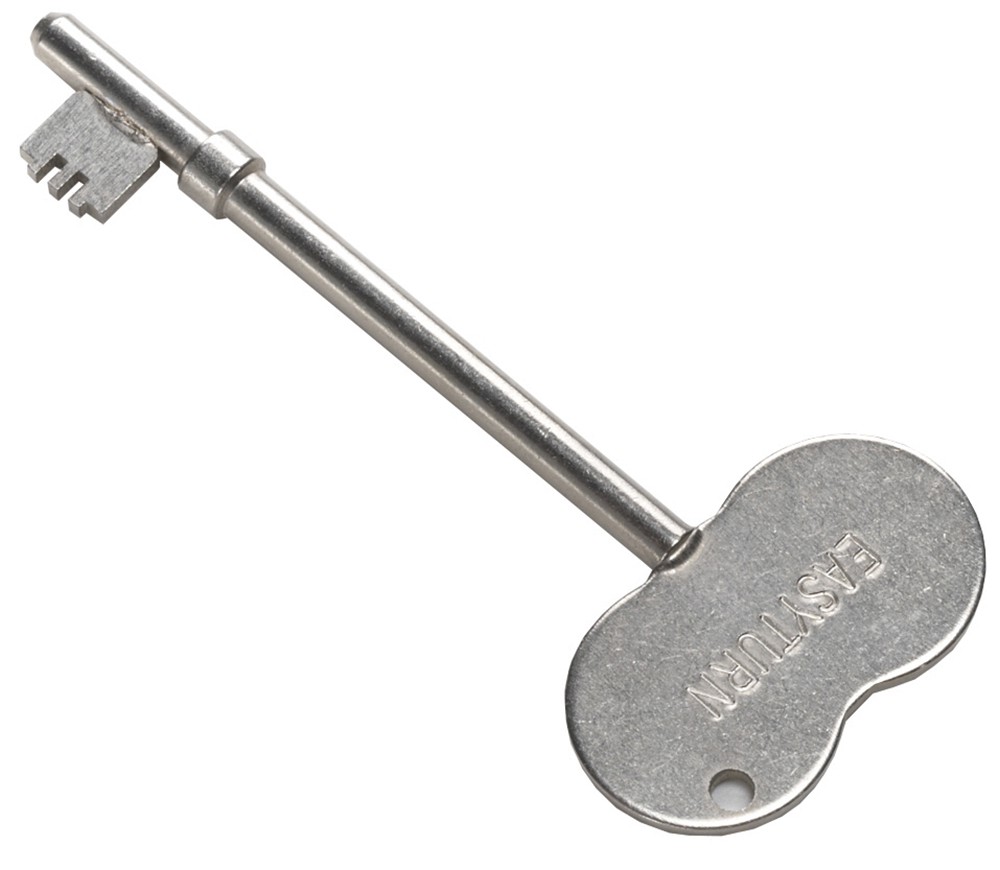The Key that Opens 9,000 Bathrooms in the United Kingdom

In the United States, public places often have two restrooms — one for men, one for women — and each restroom typically has have a stall set aside for people with disabilities. That’s not the case everywhere, though. For example, in the United Kingdom, there are three washrooms: one for men, one for women, and a unisex one set aside for those with disabilities of either gender. Having a separate “disabled toilet,” as it’s called in the UK, has its advantages; for example, the bathrooms can be outfitted with a large number of accessibility features (as seen here) without having to duplicate costs due having to gender-specific bathrooms.
But separate “disabled toilets” also come with a weird, negative side effect: too often, they’re wrongfully occupied, as some people who are able to use the main bathrooms opt for the more private one (for various reasons). This not only denies access to those who need the reserved toilet, but it also makes it harder to keep the restroom clean, which is important if you’re someone for whom navigating a public restroom can be tricky. (Not everyone can simply step around questionable areas or squat instead of sit.) Therefore, some places in the UK — restaurants, for examples — began locking the doors, offering the key to disabled customers as needed.
At first blush makes a lot of sense, but it fails to take into consideration Crohn’s disease or other conditions which can cause a severe, sudden need to use the restroom. In that case, waiting for a key isn’t a reasonable option. To make matters worse, the person with the key may not be around. The UK has come up with another solution: the RADAR key.

In 1977, the United Kingdom formed the Royal Association for Disability and Rehabilitation (and later the Royal Association for Disability Rights, but in both cases, that was shortened to “RADAR”), which over the years has given way to an umbrella organization named Disability Rights UK. In some places, though, the RADAR name has stuck, and the key above is a prime example. One of the efforts RADAR undertook was one to standardize the locks on public disabled toilets throughout the UK. The theory was a sound one: if many of the disabled toilets in the country have the same lock, they could be opened with one standardized key.
RADAR (the organization) began a public outreach campaign to sign up owners of public toilets throughout the nation, and also to distribute keys like the one above to individuals who need to use the disabled toilets. Over time, many of the owners of public disabled toilets have joined the RADAR program; there are about 9,000 RADAR toilets throughout the country now, with tens of thousands of people who have a key which opens every single one of them. As the BBC reported, “People who need to use a locked disabled loo can now ‘go’ in peace, and quickly, without the indignity of asking someone if they can have a wee, please.”
There’s a downside, though. The key is designed to be easily used by those who struggle with typical keys (take a person with arthritis, for example), and therefore, the key is easily copied. A RADAR-compatable key is available to basically anyone who has the £3 or so to buy one — you can even get one on Amazon in the UK or in the US.
 Bonus Fact: Here’s another problem with locking disabled toilets and keeping the key behind the desk: the person with the key may not believe that the person who needs to go right now is disabled, as not all disabilities require the use of a wheelchair or similar device which shows others that the person is qualified to use the disabled toilet. The solution? ID cards which tell the bathroom’s proprietor that the would-be bathroom-goer is legit. In both the U.S. and UK, those affected by Crohn’s and the like can get cards (seen here and here) which advise the owner of a restroom that this is, truly, an emergency situation.
Bonus Fact: Here’s another problem with locking disabled toilets and keeping the key behind the desk: the person with the key may not believe that the person who needs to go right now is disabled, as not all disabilities require the use of a wheelchair or similar device which shows others that the person is qualified to use the disabled toilet. The solution? ID cards which tell the bathroom’s proprietor that the would-be bathroom-goer is legit. In both the U.S. and UK, those affected by Crohn’s and the like can get cards (seen here and here) which advise the owner of a restroom that this is, truly, an emergency situation.
From the Archives: A Loo of Their Own: The history of the women’s restroom in the U.S. House of Representatives.
